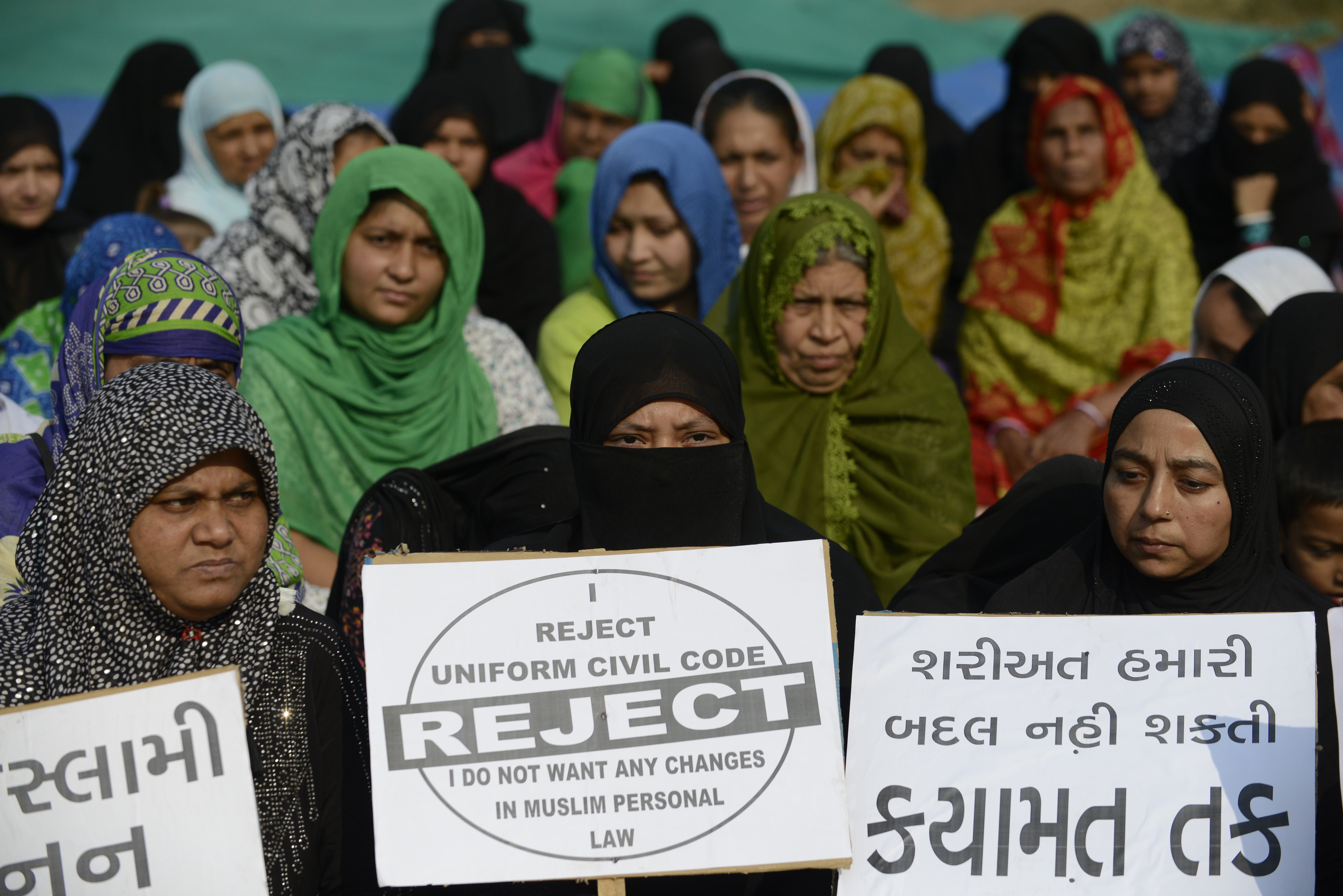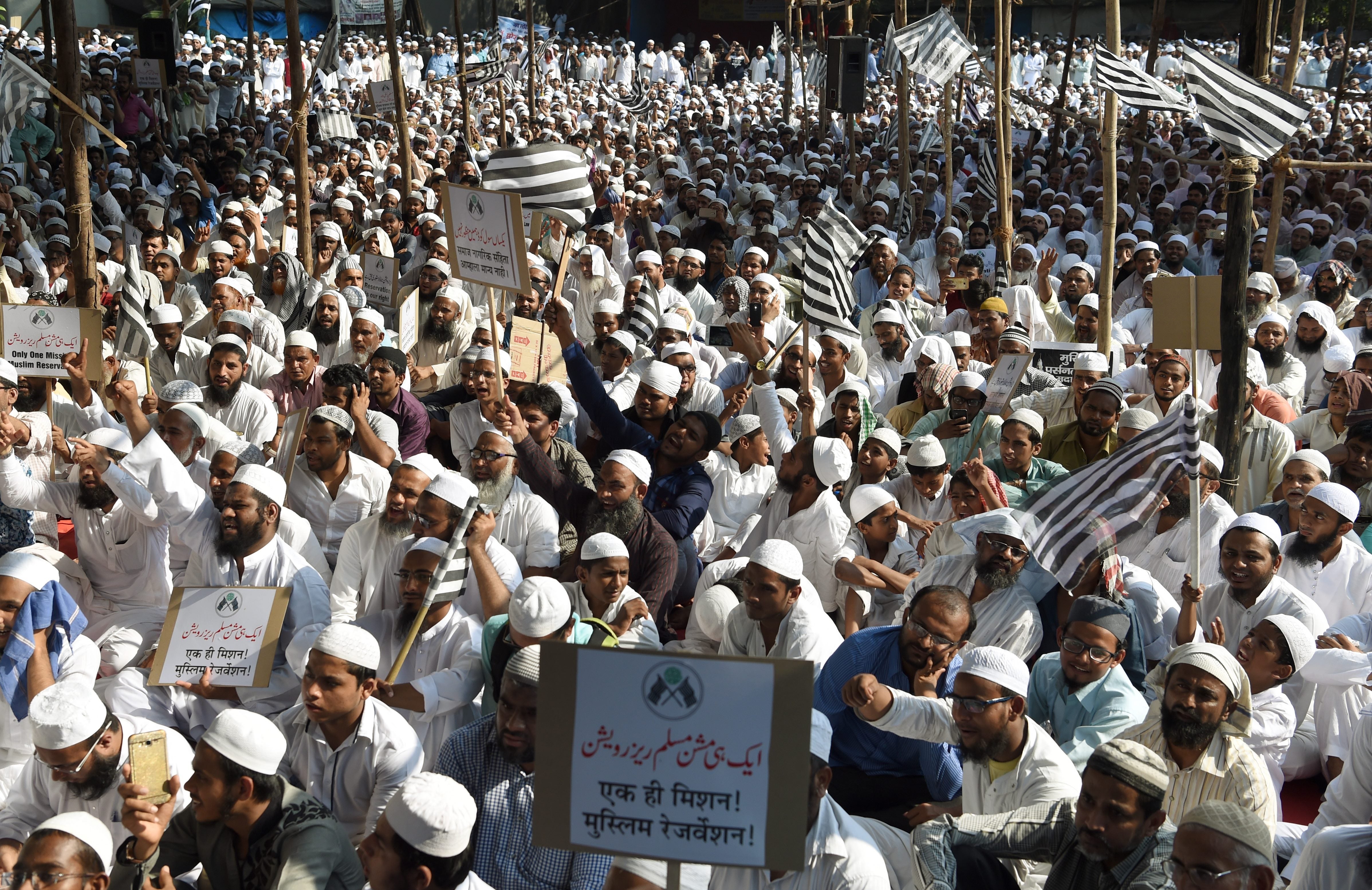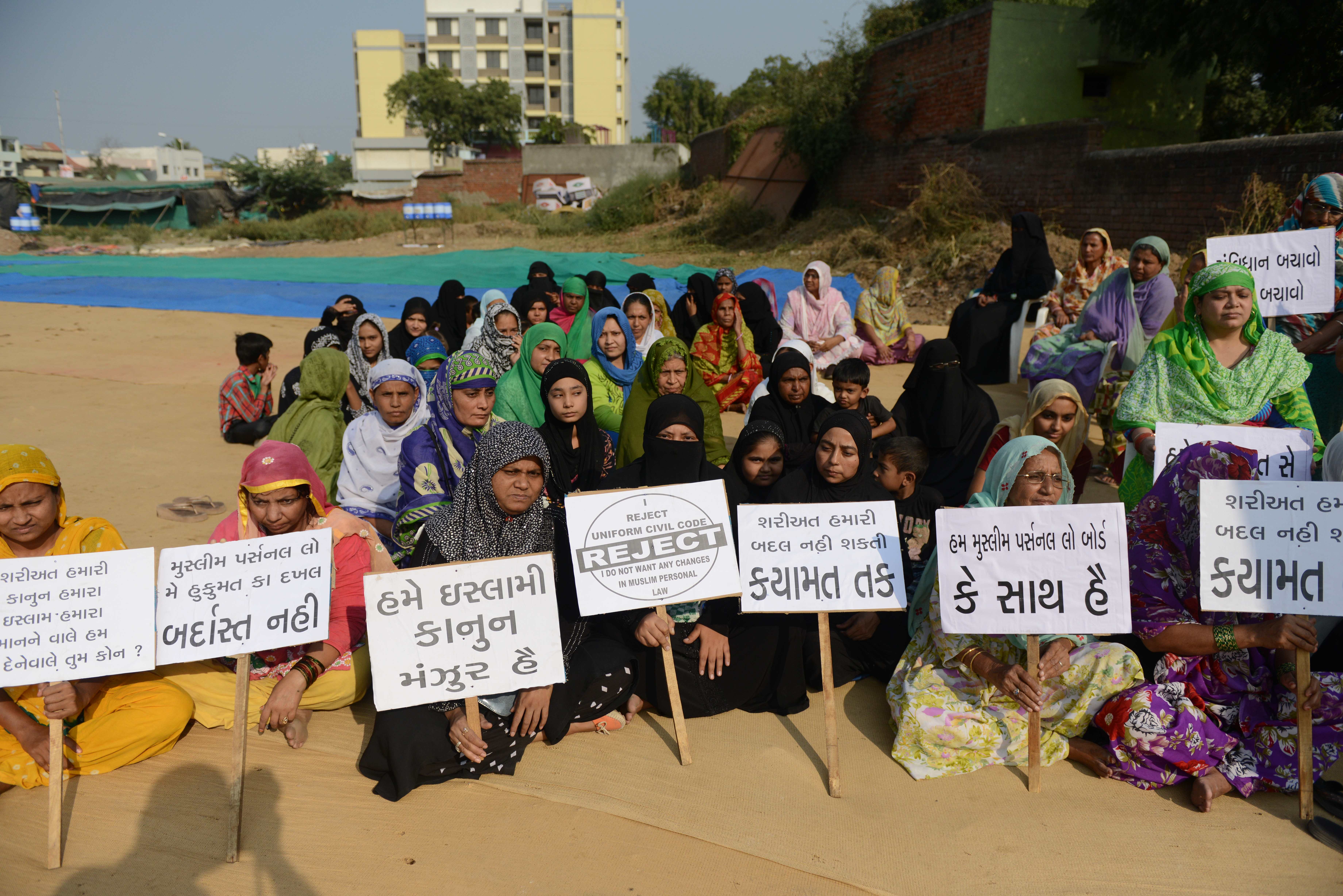Why people in India’s Land of the Gods fear being ‘guinea pigs’ for Modi’s new law
A law forcing all Indians to abide by a common set of rules on personal matters such as marriage, inheritance and divorce is finally coming into effect in the hilly state of Uttarakhand. Shweta Sharma speaks to residents to understand its impact


In the foothills of the Himalayas, a picturesque Indian state known as the “Land of the Gods” has become the site for a controversial sociopolitical experiment by the Narendra Modi-led Bharatiya Janata Party (the BJP).
This week, a new law in Uttarakhand has, for the first time since India’s independence, overridden the plurality of personal laws governing family matters for different religious groups by introducing a “uniform civil code” (UCC), meaning that all communities must follow the same rules when it comes to marriage, divorce, inheritance, and even cohabitation.
Formally, this is a measure brought by the BJP-led state government, but the towering billboards that promote the code here are all adorned with pictures of the prime minister. Modi is seeking a rare third term at elections due to take place in a month’s time, and his party has for a long time advocated rolling out the UCC nationwide.
The government has pitched the law as a tool for better national integration as well as gender equality, arguing that many of the customs enshrined in various religions’ personal laws are unfair on women. But it has drawn protests from minorities – particularly Muslims – who say that the law interferes with their faith and imposes upon them a vision of society that aligns most closely with the customs and practices of the Hindu majority.
“This bill is to dictate Hindu laws on minorities, and it is neither uniform, as it claims to be, nor does it advance gender justice,” Shivani Pandey, a working professional in the state capital Dehradun, tells The Independent.
“Superficially, it looks like it is meant for equal treatment, women’s empowerment, and inclusivity; but when you look at it in its practical form, it falls short in addressing the real issues of the state – the security of women, unemployment, and the issue of land rights,” she says. “It is nothing but a farce to woo Hindu votes in the country.”
The concept of some form of UCC was actually enshrined in India’s constitution, which recognised the diversity of the country’s practices at the time of independence but called for the country to “endeavour” to work towards implementing a common personal law for all citizens.

Hindus make up more than 80 per cent of the population in Uttarakhand, and some right-wing groups argue that the legislation is needed to counter what they describe as the regressive personal laws of Muslims.
The new law explicitly targets polygamy and child marriage, setting a uniform minimum age for marriage for men and women – 21 and 18 respectively – across all religions, as well as a uniform process for divorce.
The UCC has a strong appeal for the BJP’s Hindu nationalist base, and was one of the three main campaign promises of the current Modi government, alongside pledges to strip Muslim-majority Kashmir of its special autonomous status and to build a Hindu temple at the site of a demolished mosque in the town of Ayodhya. The government has delivered on the latter two promises.
Uttarakhand state chief minister Pushkar Singh Dhami says the new law is intended to promote “equality, uniformity and equal rights”. The legislation is meant especially for women “who have to face difficulty because of the social norms”, he says, adding that it will “strengthen their self-confidence”.

But Samir Khan, 22, a Muslim who is studying law in the state, tells The Independent that the legislation is “utterly worthless” and is only being brought in for the “electoral benefit” of the BJP government.
“In my personal views as a law student, the law has been rushed and [is] immature, as the BJP wanted to show that it can deliver on their manifesto and that they can impose it federally if brought into power in 2024,” Khan says.
“Our Uttarakhand state is a laboratory, and we are the guinea pigs. The rules under the UCC are sheerly baseless, and there is nothing in the law that shows that it has been made with careful consideration,” he adds. “The constitution gives us the freedom to follow our [personal] laws codified under it. They are trying to degrade our religious freedom.”
The legislation has now criminalised the non-registration of marriages. A penalty of three months in jail and a fine of Rs10,000 (£95) can be applied for failing to register a marriage within 60 days. The marriages register will also remain open to the public, in order to prevent bigamy and fraudulent marriages. However, experts say the law will disproportionately target intercaste and interfaith couples, subjecting them to state surveillance and harassment.
It will also criminalise a host of practices governing marriage and divorce under Muslim personal laws based on Sharia.
The UCC not only bans divorce, but makes all forms of divorce under personal laws punishable by imprisonment, and marriages can only be dissolved by going to court. It has outlawed different forms of divorce under Muslim laws, including khula, which gave women the power to initiate a divorce.
The law grants equal property rights to sons and daughters by including illegitimate children, adopted children, and children born through surrogacy or assisted reproductive technology. It abolishes the coparcenary system provided for under the Hindu Succession Act of 1956, eliminating the difference between ancestral and self-acquired property. This implies that each legal heir will possess an equal entitlement to ancestral property, mirroring their right to self-acquired property.
Suresh Gupta, 75, who has voted BJP in every election, says he welcomes the law “wholeheartedly” and believes it should be imposed across India.

“What is the problem with the law? It prohibits the exploitative practice of polygamy among Muslims, and those criticising it are only jealous of Modi, who has built a Ram temple for Hindus in Ayodhya,” says Gupta, the owner of a shop in the city square.
Namrata Mukherjee, a Delhi-based legal expert, says the UCC is “an opportunity missed” in respect of breaking away from the archaic and patriarchal personal laws in both Muslim and Hindu societies.
“The concerns of minorities are valid. If you actually carefully read the code, you will see the personal Muslim law practices have been criminalised and penalised explicitly, but a lot of outdated Hindu personal law concepts continue to be retained,” Mukherjee says.
For instance, the law is completely silent on the concept of the Hindu undivided family (HUF), specific to Hindu succession law, which recognises a family as a single unit for tax and financial purposes and does not address the complexities of contemporary family structures – making it outdated, she says.
Gender justice has been addressed to some extent with inheritance rights, but falls short in ensuring gender parity, according to Mukherjee.
“It is again silent on the regressive laws on guardianship, where all personal laws explicitly say that the father is the leading guardian of the child and the mother is the custodian of the child. So when the father has the right to make decisions in relation to the child and their property, the mother is merely the caretaker. The onus is on the mother to prove that the father is an incapable guardian or has died,” she adds.
With the law now passed in Uttarakhand, other BJP-ruled states such as Assam, Gujarat and Madhya Pradesh have already begun work on drafting their own UCCs. Mukherjee believes that Uttarakhand’s legislation will be used as a template by other states, and that, because of its lack of clarity and progress on several key points of personal law, this will lead to “tremendous confusion” as it is rolled out across the country.
Click here for the first instalment of this two-part series: ‘Policing love’: Why couples could now be thrown in jail just for living together in India






Join our commenting forum
Join thought-provoking conversations, follow other Independent readers and see their replies
Comments